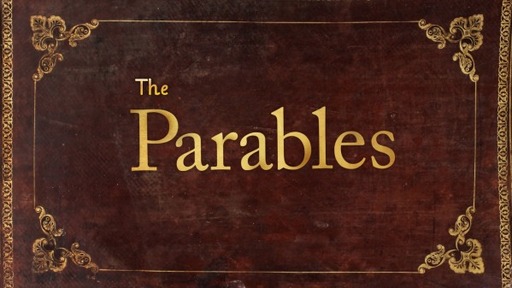The Stewardship Test

Notes
Transcript
Luke 16:1-13
Luke 16:1-13
Intro:
Intro:
I have often told you that the parables must be understood as a whole and not to individualize the characters as to who they represent. This parable amplifies that exegetical truth. It has often been viewed as an enigma to Bible readers, including myself. Yet the point of this parable is very poignant and clear when you understand some critical elements.
You must remember that the parable is being used to teach a principle not overtly spoken.
The individual characters in the parable have no individual significance.
Jesus does not necessarily always condone or condemn the actions of those in the parable; rather, He uses them to reveal or amplify a hidden truth.
The last verse or first verse of a parable usually gives or points to the meaning.
Background on the Parable
Background on the Parable
Mamon,/wealth— Gr. μαμονας; Aramaic māmôn, possessions or money; possibly originally meaning ‘that in which one puts one’s trust’, hence ‘wealth.’ i.e., personified as an object of worship.
The moral of the story is: Use possessions to serve people, because you are only God’s managers of anything you have.
How we handle money reveals volumes about our priorities, loyalties, and affections" Robert Morris--The Blessed Life.
Message
Message
Money and possessions are the two best indicators of a an idolatrous heart.
Statistics on American materialism:
1. There are 300,000 items in the average American home (LA Times).
2. The average size of the American home has nearly tripled in size over the past 50 years (NPR).
3. And still, 1 out of every 10 Americans rent offsite storage—the fastest growing segment of the commercial real estate industry over the past four decades. (New York Times Magazine).
4. While 25% of people with two-car garages don’t have room to park cars inside them and 32% only have room for one vehicle. (U.S. Department of Energy).
5. Some reports indicate we consume twice as many material goods today as we did 50 years ago.
6. Americans spend $1.2 trillion annually on nonessential goods—in other words, items they do not need (The Wall Street Journal).
All this accumulation and misdirected spending reveals the idolatry of American hearts.
The earth is the Lord’s, and all it contains,
The world, and those who dwell in it.
1 Cor 6:20 says we were bought w/ a price; that price the blood of Jesus.
Therefore all we have and all we are belongs to God.
David Livingston once said, “I place no value on anything I have or may possess, except in relation to the kingdom of God. If anything will advance the interests of the kingdom, it shall be given away or kept, only as by giving or keeping it I shall most promote the glory of Him to whom I owe all my hopes in time or eternity.”
When I have any money, I get rid of it as quickly as possible, lest it find a way into my heart.— John Wesley
Jesus said we were to use this world’s wealth for the kingdom
Jesus said we were to use this world’s wealth for the kingdom
V. 9 seems to be the most problematic in understanding.
“I tell you, make friends for yourselves using worldly riches so that when those riches are gone, you will be welcomed in those homes that continue forever.
How we use our money is the best gauge of our hearts.
We should be using the wordly things to gain favor w/ people in order to influence them for the gospel.
Those who hold wealth as their god use it for themselves.
Acts 4:32-35
Acts 4:32-35
“In everything I showed you that by working hard in this manner you must help the weak and remember the words of the Lord Jesus, that He Himself said, ‘It is more blessed to give than to receive.’ ”
Then Peter said to Him, “Behold, we have left everything and followed You; what then will there be for us?”
This coming on the heels of the rich young ruler who went away sad after Jesus told him to go and sell all he had and give to the poor.
In Luke 19 Zacchaeus is commended by Jesus b/c he said he would pay back four-fold of those he had wronged, and more importantly that he would give half of his wealth to the poor.
Cyprian of Carthage — For when Zacchæus said, “Behold, the half of my goods I give to the poor; and if I have done any wrong to any man, I restore fourfold,” Jesus answered and said, “That salvation has this day come to this house, for that he also is a son of Abraham.” For if Abraham believed in God, and it was counted unto him for righteousness, certainly he who gives alms according to God’s precept believes in God, and he who has the truth of faith maintains the fear of God; moreover, he who maintains the fear of God considers God in showing mercy to the poor.
Mother Teresa used to say, “In the poor we meet Jesus in his most distressing disguises.”
In Acts 10, the Holy Spirit was poured out on the Gentiles in Cornelius’ house; interestingly, he was a giver of alms.
Matt 25:31-46
Matt 25:31-46
Jesus gives us a glimpse of the judgment.
Giving and doing righteous things does not purchase our eternal salvation, but it does reveal our hearts.
Just even as Cyprian said, “certainly he who gives alms according to God’s precept believes in God, and he who has the truth of faith maintains the fear of God; moreover, he who maintains the fear of God considers God in showing mercy to the poor.